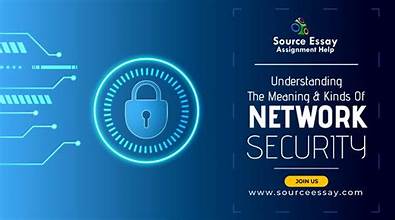Introduction to 185.63.2253.200
In the modern world, the internet connects billions of devices, enabling communication, commerce, entertainment, and more. Among the most crucial elements that help establish a connection between devices are IP addresses. One such IP address that may catch the eye of cybersecurity professionals, network administrators, or curious users is 185.63.2253.200. In this article, we will take a closer look at 185.63.2253.200, what it represents, its potential risks, and how it fits into the broader context of network security.
Understanding the role of such IP addresses is essential in identifying threats, maintaining network security, and ensuring smooth internet functionality. Let’s explore the world of 185.63.2253.200 to grasp its importance.
Table of Contents
The Basics of IP Addresses
Before diving into the specifics of 185.63.2253.200, it’s important to understand what an IP address is. An IP address, or Internet Protocol address, serves as a unique identifier for each device connected to the internet. Every device, whether it’s a smartphone, computer, or server, needs an IP address to communicate with other devices over the network.
There are two primary versions of IP addresses: IPv4 and IPv6. 185.63.2253.200 falls under the IPv4 category, which consists of four sets of numbers ranging from 0 to 255. These sets are separated by periods, making it easier for both humans and machines to read
Decoding the IP Address: What Does 185.63.2253.200 Mean?
When we look at 185.63.2253.200, we are dealing with an IPv4 address. But what does this number represent? Is it assigned to a specific organization, location, or device? To understand this better, we need to perform a process called IP lookup.
An IP lookup reveals key details about the address, such as the organization that owns the address, its location, and other important data. This information can be valuable for security experts trying to track suspicious activity or identify potential cyber threats.
185.63.2253.200 is not just a random number. It’s a unique identifier used by devices and systems that communicate with each other over the internet. However, the use of this address is often linked to security and privacy concerns. Let’s delve deeper into how IP addresses like 185.63.2253.200 are used and why they matter.
The Significance of 185.63.2253.200 in Network Security

One of the most critical aspects of the internet today is security. 185.63.2253.200 may not seem like a significant address, but it could potentially be part of a broader cyber threat landscape. Many cybercriminals use specific IP addresses to execute malicious attacks such as Distributed Denial of Service (DDoS) or phishing scams. Identifying these addresses helps network administrators block them from communicating with their systems.
For example, if 185.63.2253.200 is flagged as a suspicious address, it may be a part of a botnet or network used to launch DDoS attacks. By knowing the origin of the IP address, security teams can take the necessary steps to prevent such attacks and protect their infrastructure.
Another potential risk of 185.63.2253.200 could involve privacy breaches. If someone with access to this IP address attempts to access personal information, network logs, or browsing history, they might be trying to exploit vulnerabilities. This highlights the importance of safeguarding private data and monitoring IP addresses that show suspicious activity.
How to Protect Your Network from Threats Like 185.63.2253.200
As technology continues to evolve, so do the methods cybercriminals use to exploit vulnerabilities. It’s important to know how to protect your network from threats that could be linked to suspicious IP addresses like 185.63.2253.200. Here are some best practices to safeguard your systems:
1. Regular IP Monitoring
Regularly monitoring the incoming and outgoing IP addresses in your network logs can help detect any unusual activity. If you notice addresses like 185.63.2253.200 showing up repeatedly in suspicious contexts, it’s a sign to take action.
2. Implement IP Blocking
If you discover that 185.63.2253.200 is associated with malicious activity, it’s important to block that IP address. Many firewalls and network security tools allow administrators to block specific IP addresses, preventing them from accessing your network.
3. Use Virtual Private Networks (VPNs)
A VPN encrypts your internet traffic, masking your real IP address and replacing it with one from a remote server. This adds an additional layer of security, especially if you need to browse sensitive or private information.
4. Apply Regular Software Updates
Ensure your network devices and security software are regularly updated. Cybercriminals often exploit vulnerabilities in outdated software to gain access to systems. Keeping everything up-to-date minimizes the risks posed by malicious IP addresses like 185.63.2253.200.
Investigating 185.63.2253.200: Tools and Resources

There are several tools and resources available to investigate IP addresses like 185.63.2253.200. One popular method is to use an IP lookup service. These services provide detailed information about the origin, owner, and geographic location of an IP address. Some well-known IP lookup tools include:
- IPinfo.io
- Whois Lookup
- IP Location
By using these tools, you can gather insights into the owner of 185.63.2253.200, the country or region it originates from, and any other associated details. This information is useful for law enforcement, cybersecurity professionals, or anyone trying to secure their network from potential threats.
What to Do if You Encounter 185.63.2253.200 in Your Logs
If you find 185.63.2253.200 in your network logs or security alerts, the next steps depend on the context. Here are some general guidelines:
1. Investigate the Source
Use IP lookup tools to determine the source of 185.63.2253.200. If it’s linked to a known malicious actor or botnet, it’s essential to take immediate action.
2. Block the Address
If the investigation confirms that 185.63.2253.200 is associated with malicious behavior, blocking the IP address on your firewall can prevent further intrusions.
3. Monitor for Further Activity
Even after blocking 185.63.2253.200, continue monitoring your network for any further suspicious activity. Cybercriminals often use multiple IP addresses to launch attacks, so vigilance is key.
4. Report Suspicious Activity
If 185.63.2253.200 is linked to a cyberattack or security breach, report it to the relevant authorities or cybersecurity organizations. They can track down the source and prevent further incidents from occurring.
Is 185.63.2253.200 Safe to Use?
For most individuals and organizations, 185.63.2253.200 will not be something they actively interact with. It could either be safe or pose risks depending on the context. If you’re an end user, it’s not typically something to worry about unless you notice specific issues, like slow internet speed, suspicious emails, or other signs of a security breach.
On the other hand, for network administrators, the presence of 185.63.2253.200 in network logs could indicate potential cyber threats. In this case, further investigation is warranted to assess whether this IP address poses a risk.
Also read trwho .com: A Comprehensive Guide to Understanding the Website
Conclusion
In conclusion, 185.63.2253.200 serves as an example of the importance of understanding the role of IP addresses in today’s internet landscape. While a seemingly innocuous number, an IP address like 185.63.2253.200 can hold key information that helps network administrators, cybersecurity professionals, and regular users protect their data, networks, and privacy.
Whether you’re investigating 185.63.2253.200 for potential security threats or simply trying to understand the mechanics behind IP addresses, knowing how to approach these numbers and when to take action can make all the difference in maintaining a safe and secure network.
By implementing best practices like IP monitoring, blocking suspicious addresses, and using the right tools, you can protect your system from threats related to IP addresses like 185.63.2253.200.
